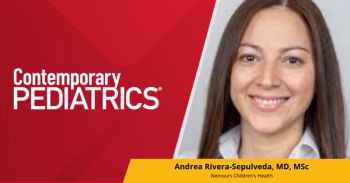
Phase 3 trial of omaveloxolone to treat Friedreich ataxia in children aged 2 to <16 begins
Currently, omaveloxolone (Skyclarys) is approved to treat adults and adolescents aged 16 years and older impacted by FA.
On June 18, Biogen announced the dosing of participants in the BRAVE study (NCT06953583), a global phase 3 clinical trial evaluating omaveloxolone (Skyclarys) in children aged 2 to younger than 16 years with Friedreich ataxia (FA).1
Omaveloxolone is currently approved in over 40 countries, including the United States and European Union, for individuals aged 16 years and older. The BRAVE study marks the first time the drug is being studied in a pediatric population below this age group.
Design of the phase 3 BRAVE trial
In approximately 255 children living with FA, the BRAVE trial will evaluate the efficacy, safety, pharmacokinetics, and pharmacodynamics of once-daily oral omaveloxolone. Participants will be randomized 2:1 to receive either once-daily omaveloxolone or placebo for 52 weeks before entering an open-label extension period lasting up to week 104. The primary efficacy outcome will measure change in Upright Stability Score (USS), a validated subscale of the modified Friedreich’s Ataxia Rating Scale (mFARS), which is regarded by the FA community "as the most sensitive means of measuring disease progression in children living with FA," stated Biogen in the press release.
“Recognizing the symptoms of FA typically begin in childhood, and earlier onset of symptoms is associated with faster disease progression, there is tremendous unmet need in the pediatric community,” said Stephanie Fradette, PharmD, Head of the Neuromuscular Development Unit, Biogen, in a statement. “We are thrilled that the phase 3 BRAVE study has now begun."
Original FDA approval of omaveloxolone
Omaveloxolone received FDA approval in February 2023 as the first treatment for FA, a rare degenerative neuromuscular disorder. In the phase 2/3 trial that supported the approval, 103 participants with FA were randomized to receive 150 mg of omaveloxolone or placebo for 48 weeks. Those who received omaveloxolone showed statistically significant improvements in mFARS scores compared to placebo. A post hoc analysis of an open-label extension showed that participants who continued on therapy for up to 3 years maintained better function than a matched set of untreated patients.2
The most common adverse effects reported in clinical trials of omaveloxolone were elevated liver enzymes, headache, nausea, abdominal pain, fatigue, diarrhea, and musculoskeletal pain. Omaveloxolone was granted orphan drug, fast track, priority review, and rare pediatric disease designations from the FDA.
“Early onset patients often have the most aggressive and fast progressive form of FA and through the BRAVE study we aim to determine the potential safety and efficacy of omaveloxolone for children living with the disease," said Susan Perlman, MD, Director of the Ataxia Center at UCLA.1
Biogen stated that enrollment has begun in the United States and that global sites will be activated pending regulatory and ethics approvals.
References:
1. Biogen Announces Dosing of First Patient in BRAVE Study of SKYCLARYS (omaveloxolone) in Children with Friedreich Ataxia. Biogen. Press release. June 18, 2025. Accessed June 18, 2025. https://investors.biogen.com/news-releases/news-release-details/biogen-initiates-phase-3-pediatric-study-omaveloxolone-treatment
2. FDA Approves First Treatment for Friedreich’s Ataxia. FDA. Press release. February 28, 2023. Accessed June 18, 2025. https://www.fda.gov/drugs/news-events-human-drugs/fda-approves-first-treatment-friedreichs-ataxia
Newsletter
Access practical, evidence-based guidance to support better care for our youngest patients. Join our email list for the latest clinical updates.








